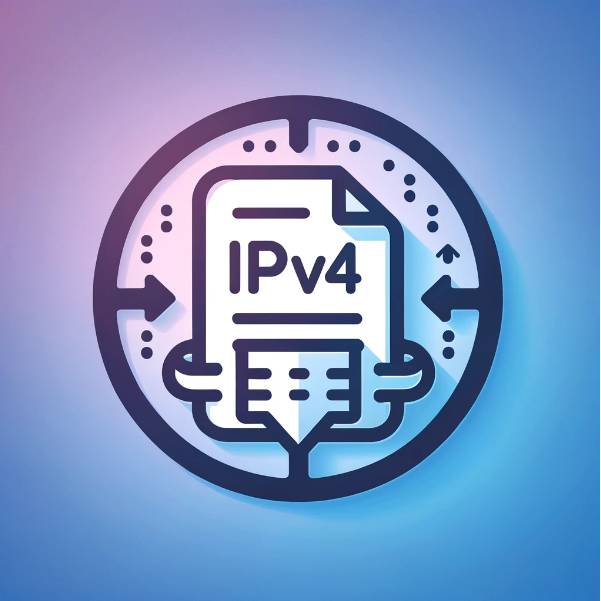In the ever-evolving landscape of network infrastructure, the leasing of IPv4 addresses has emerged as a strategic solution for organizations seeking to scale their networks without the significant upfront costs associated with purchasing IP addresses.

The primary reason for considering IPv4 leasing is the scarcity of available IPv4 addresses. With the exhaustion of IPv4 address space, organizations are increasingly turning to leasing as a viable option to meet their networking requirements. IPv4 offers approximately 4.3 billion addresses, many of which are already in use or reserved for specific purposes, making it essential for lessees to assess their specific needs before initiating the leasing process.
IPv4 leasing is a process where organizations can rent IP addresses from a provider for a specified period, instead of purchasing them outright. This approach offers flexibility and cost savings, making it an appealing choice for organizations with immediate needs, smaller businesses, and those looking to scale their networks without significant upfront investments. When leasing IP addresses, the provider takes care of maintenance and technical support for the leased address space, relieving the lessee from the burden of setting up or managing the necessary equipment.
It is imperative for lessees to have a comprehensive understanding of the current policies and regulations governing IPv4 leasing. Organizations should ensure compliance with the policies outlined in the ARIN’s Number Resource Policy Manual to avoid any potential regulatory issues.
Upon leasing IPv4 address space, lessees must adhere to policies pertaining to reallocations/reassignments and ensure that the leased IP space is accurately recorded. This practice is essential for maintaining transparency and complying with regulatory requirements.
Lessees should carefully evaluate the significant benefits of leasing IPv4 resources as opposed to purchasing them. These benefits include cost-effectiveness, scalability, and flexibility for network expansion, making IPv4 leasing a highly advantageous solution for organizations.
While leasing IPv4 addresses can address immediate networking needs, organizations should also consider long-term strategies, including the transition to IPv6. This ensures sustainability and scalability for future network growth, aligning with the evolving landscape of IP address management.
In 2024, numerous providers and brokers offer IPv4 leasing services. The following criteria should be evaluated to select the most suitable IPv4 lease provider:
The types of IPv4 leasing agreements can vary based on the terms and conditions negotiated between the lessor (provider) and the lessee (renter). Some common types of IPv4 leasing agreements include:
Negotiating an IPv4 leasing agreement with a provider involves several key steps to ensure a smooth and mutually beneficial arrangement.
The costs associated with IPv4 leasing can vary based on market demand, supply, and the terms of the lease agreements. The average lease price per IPv4 address was approximately $0.50 to $0.59 in 2022, offering a cost-effective solution for organizations compared to the average sale price of around $50 per IP address in the same year.
Providers may offer fixed monthly fees for leasing IPv4 addresses, with prices starting at around €0.50/IP monthly on a two-year agreement, and slight discounts possible based on longer terms and/or larger orders. Additionally, the cost of leasing IPv4 addresses can be influenced by factors such as the size of the IP block, geographic location, and the duration of the lease agreement.
It’s important for organizations to carefully consider the pricing and terms offered by IPv4 lease providers to ensure a cost-effective and efficient leasing experience. By evaluating the average market prices and the specific terms of the lease agreements, organizations can make informed decisions when engaging in IPv4 leasing arrangements.
| Aspect | Fixed Fees | Variable Fees |
| Cost Structure | Set, predetermined amount | Can fluctuate based on various factors |
| Stability | Constant over a specific period | Subject to market fluctuations |
| Predictability | Known cost structure | Less predictable, market-dependent |
| Examples | Monthly fee for leasing IPv4 addresses | Market-driven pricing based on supply and demand |
| Suitable for | Organizations seeking price stability | Organizations open to market variations |
| Risk Tolerance | Lower risk due to fixed costs | Higher risk due to potential price changes |
| Decision Factors | Budget planning, cost control | Market analysis, cost optimization |
| Long-Term Commitment | May offer price advantages on longer-term agreements | May offer flexibility for shorter-term needs |
| Market Demand Influence | Less influenced by market demand | Directly influenced by market dynamics |

Alexander Timokhin
COO